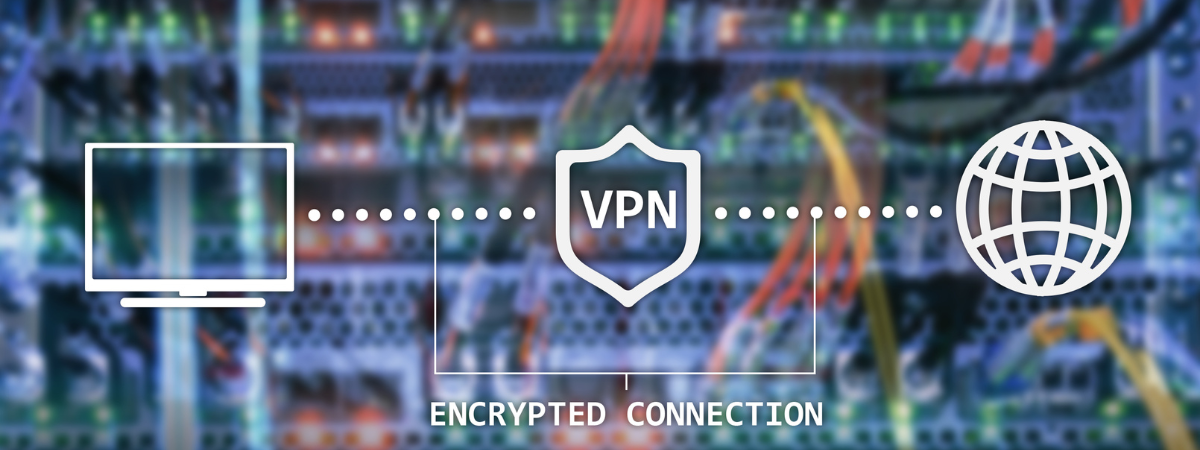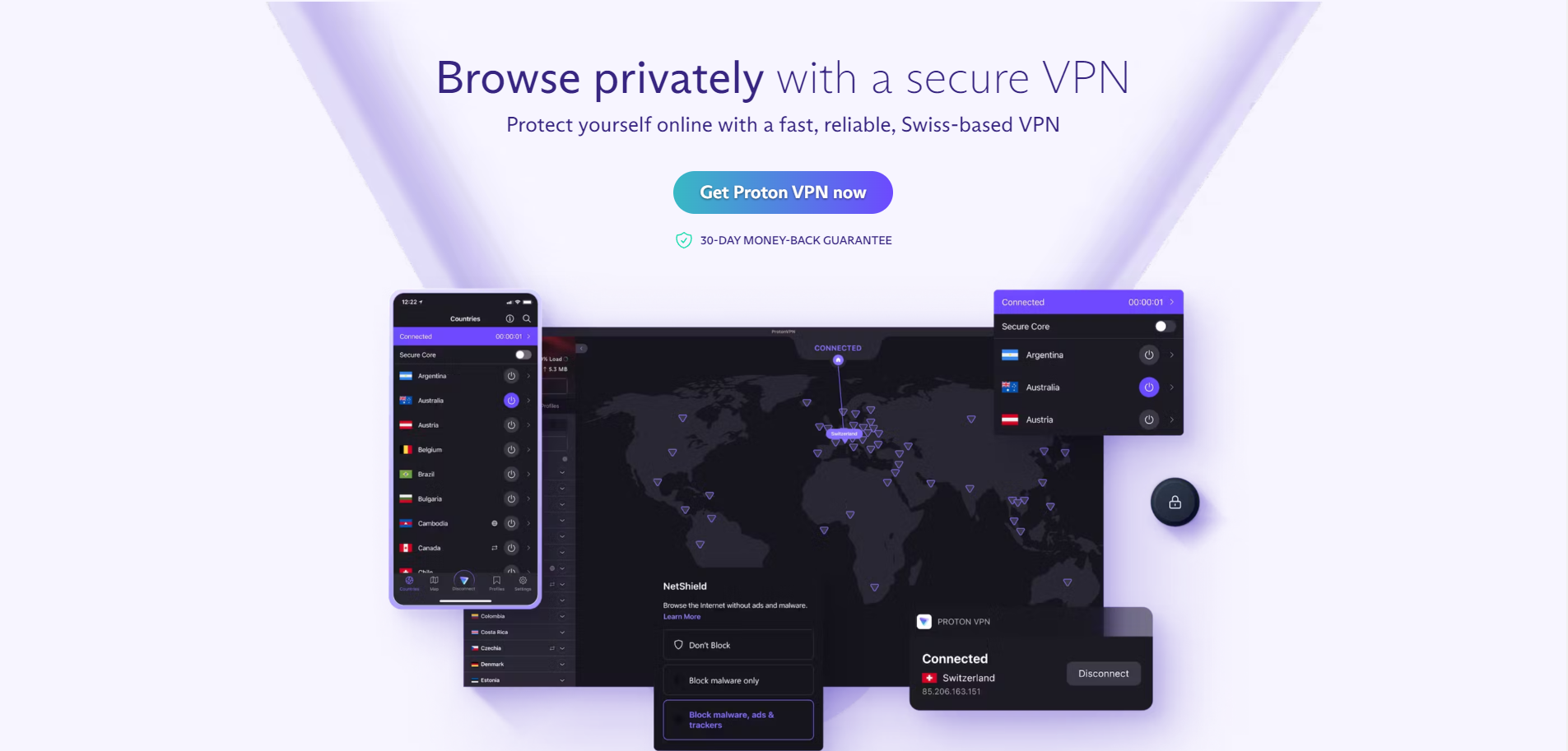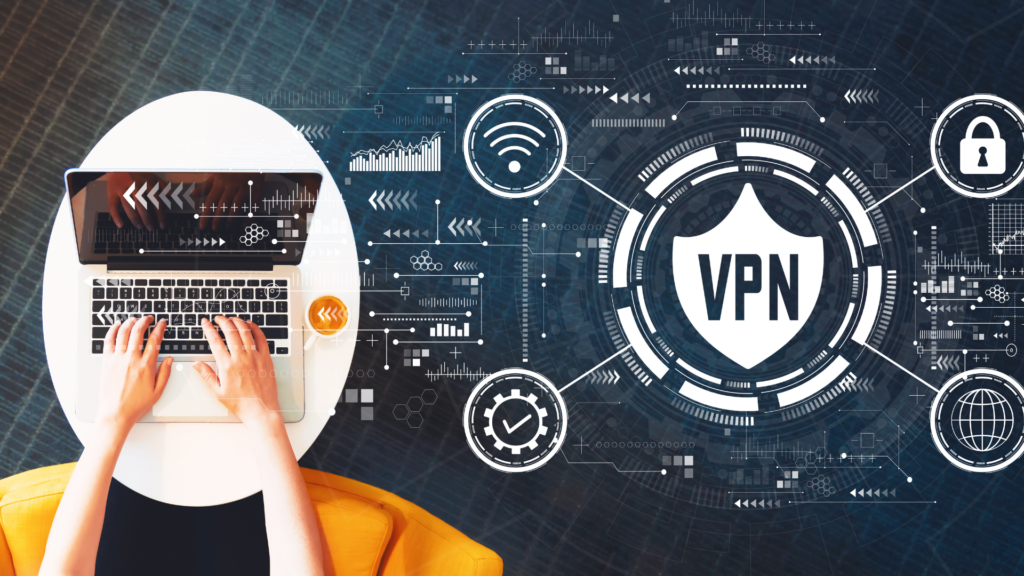The importance of Using a VPN cannot be understated in today’s digital landscape. As we embrace the dawn of 2023, the rise of remote work has been nothing short of revolutionary. This shift, however, has not come without its share of challenges, particularly in the realm of cybersecurity.
The Rise of Remote Work

In the last couple of years, our workspaces have dramatically transformed. The traditional office cubicle has been replaced with our comfortable homes, neighborhood coffee shops, or even sun-soaked beaches halfway across the globe. This newfound freedom, though liberating, comes with a hefty price tag – an increased vulnerability to cybersecurity threats.
Cybersecurity Threats: A Growing Concern
As the popularity of remote work soars, so does the frequency and sophistication of cyber attacks. These threats are no longer confined to the walls of large corporations. Small businesses, freelancers, and individual remote workers have found themselves on the radar of relentless hackers and cybercriminals. In this digital age, an unprotected remote work environment can quickly turn into a playground for these online predators.
Are You Protected?
This brings us to an important question, one that might be the difference between a secure online workspace and a crippling data breach – Are you doing enough to protect your remote work environment from potential security risks? If you’re unsure, it’s high time to consider the importance of using a VPN.
A Virtual Private Network, or VPN, could be the simple yet powerful tool you need to fortify your digital defenses. As we gear up for another year of remote work in 2023, understanding and utilizing a VPN has never been more critical.
Pandemic and the Remote Work Revolution

The global pandemic has undeniably acted as a catalyst for the remote work revolution. According to a report by Upwork, by 2025, 22% of the American workforce will be working remotely, an estimated increase of 87% from pre-pandemic levels. These statistics are a testament to the massive shift in our work culture.
When lockdowns became the norm, businesses had no choice but to adapt. Companies that had previously been hesitant about remote work found themselves scrambling to set up virtual offices. Employees swapped their office desks for home workstations. Video conferencing apps like Zoom and Microsoft Teams became household names almost overnight.
But why will this trend continue post-pandemic? Here’s why.
- Flexibility and Productivity
One of the most persuasive arguments for the continuation of remote work is the flexibility it offers. Employees are no longer bound by rigid nine-to-five schedules or grueling commutes. They can balance their professional and personal lives more effectively, leading to increased satisfaction and productivity.
A study by Stanford University found that remote workers were 13% more productive than their in-office counterparts. This increased productivity is a major incentive for companies to continue offering remote work options.
- Cost Savings
Remote work also brings significant cost savings for both employers and employees. Businesses can save on office space, utilities, and commuting allowances. Employees, on the other hand, save on transportation, meals, and work attire.
According to Global Workplace Analytics, a typical employer can save about $11,000 per half-time telecommuter per year. These savings make a compelling case for the continuation of remote work.
- Access to a Global Talent Pool
Remote work allows businesses to tap into a global talent pool. They are no longer restricted by geographical boundaries when hiring. This means they can find the best talent, irrespective of their location.
As we look to the future, the trend of remote work shows no signs of slowing down. The benefits it offers to both businesses and employees are too significant to ignore. However, with this shift comes an increased need for online security. This is where a reliable VPN steps in, providing a secure and private connection and ensuring the safety of sensitive data.
What is a VPN and How Does It Work? What’s the Importance of Using a VPN?

Let’s dissect this. Emphasizing the importance of using a VPN, a Virtual Private Network serves as your personal shield online, safeguarding your internet connection and privacy. Essentially, it acts as your individual cloaking device on the internet, rendering you invisible to cyber threats.
Here’s how it works: when you connect to a VPN, it encrypts your data and sends it through a secure tunnel to a VPN server. This server could be located anywhere in the world. From this server, your data travels to its final destination on the web – whether it’s your email inbox, a shopping website, or a streaming platform.
The beauty of this process is that to anyone trying to spy on your activities, your data appears to be coming from the VPN server, not your device. Your actual IP address is hidden, making it much harder for online snoops, including hackers and advertisers, to track your internet activity.
The Indispensability of VPNs in Remote Work
Without any exaggeration, using a VPN is one of the most crucial steps you can take to secure your remote work environment. Why so? Well, when you’re working remotely, you’re likely sharing sensitive information online – think client details, project data, or financial transactions. A VPN acts as a protective shield for this information, keeping it safe from prying eyes.
Moreover, remote work often involves connecting to public Wi-Fi networks, like those at coffee shops or airports. These networks are notorious for being insecure and rife with potential cybersecurity threats. A VPN provides an added layer of security, ensuring your data remains secure even on these potentially risky networks.
Common Misconceptions About VPNs

In the world of cybersecurity, misconceptions abound, especially when it comes to Virtual Private Networks (VPNs). Let’s debunk some of these common misconceptions.
Do VPNs Slow Down Internet Speed?
One of the most prevalent myths about VPNs is that they slow down your internet speed. While it’s true that a VPN routes your data through an extra step (the VPN server), any slowdown is typically minimal and often unnoticeable. In fact, a high-quality VPN may even improve your internet speed if your service provider is throttling your bandwidth.
It’s important to remember that many factors can affect internet speed, including your physical location, the quality of your internet connection, and the server you’re connected to. If you experience a significant slowdown while using a VPN, try switching servers or contact your VPN provider for assistance.
Are Free VPNs Safe to Use?
The old adage “you get what you pay for” rings true when it comes to VPNs. While there are numerous free VPN services available, they often come with significant drawbacks.
Free VPNs need to make money somehow, and this is often done through advertising or selling user data – the very thing you’re trying to protect by using a VPN! Moreover, free VPNs often have slower speeds, data limits, and fewer security features.
For the best protection, it’s recommended to use a reputable, paid VPN service. They usually offer superior security, faster speeds, and better customer support.
Can VPNs Be Hacked?
Another common question is whether VPNs can be hacked. The simple answer is yes, but it’s highly unlikely.
VPNs use robust encryption protocols that make it extremely difficult for hackers to break in. While no system is completely immune to hacking, the level of security provided by a quality VPN makes the task daunting for most cybercriminals.
Remember, the goal of using a VPN is to make your data as secure as possible. A reliable VPN does exactly that, making you a less attractive target for hackers.
Jobs That Usually Require VPNs

The significance of a Virtual Private Network (VPN) extends beyond secure browsing. Certain professions, due to their specific demands and nature, require the use of a VPN. Let’s delve into such jobs.
Remote IT Professionals
IT professionals working remotely often need to access secure company networks. A VPN provides a safe passage for this, enabling them to troubleshoot issues, monitor network health, and maintain systems without compromising security.
Journalists
Journalists, especially those reporting from abroad or on sensitive topics, need VPNs to protect their sources and research. A VPN also allows them to bypass censorship or content restrictions in certain regions.
Financial Analysts
Financial analysts handle sensitive financial data and transactions that need the utmost protection. A VPN bolsters this security, ensuring that the data they handle remains confidential and secure.
Traveling Salespeople
Salespeople traveling frequently often connect to public Wi-Fi networks, which can be insecure. A VPN shields their communications and data from potential threats on these networks.
Digital Marketers
Digital marketers, like SEO content writers, often deal with sensitive client data and need to bypass regional restrictions to understand global trends and audiences. A VPN helps them do this securely and efficiently.
Human Resource Professionals
HR professionals handle sensitive employee data, including personal information, bank details, and more. A VPN ensures this data remains secure during online transmissions.
Whether it’s IT, journalism, finance, sales, content writing, digital marketing, or HR, many professions today require the security and flexibility that a VPN provides.
How VPNs Enhance Remote Work Security?

Protecting Data with Encryption
A VPN enhances remote work security primarily through data encryption. When you send or receive data over the internet, it’s visible to anyone who knows how to look for it. Encryption converts this data into coded messages, unreadable to anyone without the decryption key.
Imagine you’re sending a letter through a public mail system. Without encryption, your letter is like an open postcard, readable by anyone handling it. Encryption seals your letter in an envelope, protecting your message from prying eyes.
Masking IP Addresses for Anonymity
Another significant benefit of VPNs is IP masking. Your IP address is a unique identifier for your device on the internet, much like your home address. It can reveal your geographical location and browsing history. A VPN masks your IP address, making it appear as if you’re browsing from a different location. This makes it harder for cybercriminals to target you.
The Emotional Appeal: Peace of Mind
Now, let’s talk about the emotional aspect of VPN usage. In an age where data breaches are increasingly common, the fear of having personal or professional information stolen is real. Using a VPN provides a sense of security and privacy while working remotely.
Imagine being able to work from your favorite coffee shop, securely accessing your company’s network, and knowing that your data is safe from potential hackers lurking on public Wi-Fi. That peace of mind can make your remote work experience significantly more enjoyable and productive.
Embracing Secure Remote Work
As the trend towards remote work continues to grow, so does the importance of data security. VPNs provide an effective solution by encrypting data and masking IP addresses. But beyond these tangible benefits, VPNs cater to our inherent desire for privacy and security. They provide us with the peace of mind we need to work remotely with confidence, knowing our data is safe.
While technology evolves, so do the threats that come with it. A VPN acts as a personal bodyguard in the digital world, shielding your data from potential threats. In essence, it’s not just a tool but a critical ally in ensuring secure and worry-free remote work.
Choosing the Right VPN for Your Needs
Understanding the importance of using a VPN, and choosing an appropriate one from the multitude of options can seem daunting. Here are seven tips to guide you through this selection process, ensuring you find the best VPN that suits your needs.
1. Consider Your Needs
Before diving into the sea of VPNs, first, identify your needs. Are you looking for better security while browsing? Do you need to access geo-restricted content? Or perhaps you’re seeking improved network speeds? Knowing what you want makes the selection process easier.
2. Speed Matters
Your VPN shouldn’t slow you down. Check for VPNs that offer unlimited bandwidth and high-speed servers. Remember, a fast VPN enhances your browsing and streaming experience.
3. Security First
Look for a VPN that uses advanced encryption standards and offers features like a kill switch and DNS leak protection. These features ensure your data remains secure, even if the VPN connection drops unexpectedly.
4. Price vs. Value
While free VPNs can be tempting, they often come with limitations and may compromise security. It’s worth investing in a paid VPN that offers comprehensive features and robust security.
5. User-Friendliness
If you’re new to VPNs, opt for one with a user-friendly interface. Easy setup and simple navigation can make your VPN experience smooth and hassle-free.
6. Check Compatibility
Ensure the VPN is compatible with all your devices. The best VPNs offer apps for various platforms like Windows, Mac, iOS, and Android.
7. Customer Support
Good customer support can be a lifesaver if you run into any issues. Look for VPNs that offer 24/7 support via chat or email.
Recommendation: Proton VPN
Considering these factors, one VPN that stands out is Proton VPN. It offers high-speed connections, top-notch security features, and user-friendly applications. Moreover, it’s reasonably priced and offers excellent customer support. Whether you’re a novice or a tech-savvy user, Proton VPN caters to your needs and ensures a secure, seamless browsing experience.

Choosing the right VPN involves careful consideration of your needs and available options. Remember, the best VPN for you is one that ticks all your boxes and offers value for money. With these tips in mind, you’re well-equipped to make an informed choice.
In the rapidly evolving digital age, maintaining security while working remotely is more important than ever. A VPN plays a pivotal role in ensuring this security.
VPNs are not just an optional accessory but a fundamental necessity for remote work. They provide robust encryption, keeping your data secure from potential threats. They also mask your IP address, preserving your anonymity and protecting you from cyber attacks.
Beyond these technical aspects, a VPN significantly enhances your remote work experience. It allows you to access content without geographical restrictions, opens up global opportunities, and provides peace of mind. With a VPN, you can work confidently from anywhere, knowing your data is safe.
FAQs
When it comes to VPNs, it’s natural to have questions. Here are answers to some of the most commonly asked queries about VPNs.
Is Using a VPN Legal?
Yes, using a VPN is completely legal in most countries. However, what you do while connected to the VPN must also abide by the law. Remember, a VPN is a tool for privacy and security, not a license for illegal activities.
Can I Use a VPN on Multiple Devices?
Absolutely! Most premium VPNs, like Proton VPN, allow you to use one subscription on multiple devices. This means you can protect all your devices with a single VPN account.
Does a VPN Slow Down Internet Speed?
A VPN might slightly reduce your internet speed due to the encryption process. However, top-tier VPNs like Proton VPN work hard to minimize this impact, ensuring you enjoy fast and smooth browsing.
Can a VPN Protect Me from Viruses?
While a VPN enhances your online security, it doesn’t protect you from viruses or malware. For that, you still need reliable antivirus software. Think of a VPN as a secure tunnel for your data and an antivirus as a guard against harmful files.
Is a Free VPN a Good Option?
Free VPNs can be tempting, but they often come with limitations and potential risks. They may have slower speeds, fewer server options, and weaker security. Some may even sell your data to third parties. Therefore, investing in a reputable, paid VPN is usually the safer and more reliable option.
This article contains affiliate links

